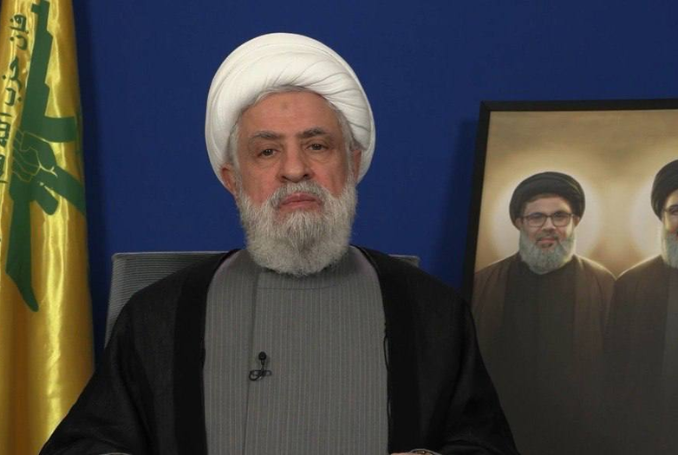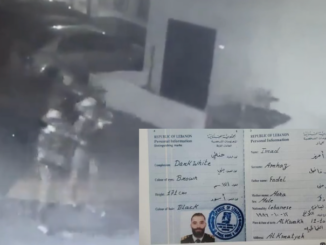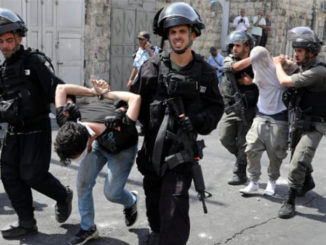
Ahmad Abdel Rahman writes in Al Mayadeen Arabic website, analyzing the potential strategies Hezbollah could adopt in response to Israel’s failure to fully implement the ceasefire agreement.
In recent weeks, especially after the suspension of the ceasefire agreement between the occupation army and Hezbollah, many in the region and worldwide have been analyzing and interpreting the true events that took place on the northern front of occupied Palestine, as well as on the Lebanese front opposite it, and the resulting consequences, which may arise from the tough battle fought there.
Many analysts have adopted the hypothesis of Hezbollah’s retreat after the losses it suffered at the leadership level, including its Secretary-General, the martyr Sayyid Hassan Nasrallah.
Some prominent analysts even went so far as to claim that the party would never recover, and that it would experience further setbacks in the coming period, particularly after the dramatic shift in Syria, starting with its alleged abandonment of its candidate for the Lebanese presidency, Minister Suleiman Frangieh, and its reluctant acceptance of Army Commander Joseph Aoun, who was elected last Thursday, and who is said to be supported by Saudi Arabia and the United States.
Hezbollah’s Silence
In contrast to all these analyses that have been echoed on major television networks, accompanied by leaks, interpretations, and claims, as well as the official statements from Israel, including those from its Prime Minister and the past and current defense ministers, Hezbollah has remained largely silent. It preferred to let others speak as they wished, while it itself observed, monitored, and assessed the situation. Moreover, according to informed sources, the party has begun working at various levels, with remarkable speed and efficiency.
On the one hand, it began assessing the damages, providing aid to all those affected by the aggression, and evaluating the extent of the harm to its military and security infrastructures. It worked to compensate for a large portion of the losses and shortages caused by the aggression and filled all vacancies in its structure—politically, militarily, security-wise, media-wise, and socially—overcoming all obstacles that some attempted to place in its way, including efforts to prevent the flow of funds necessary to begin reconstruction and compensate the families of martyrs and the injured.
The Upcoming Deadline
In less than ten days, Hezbollah, in particular, and the Lebanese people and the region in general, will face an important deadline, as the sixty-day ceasefire agreed upon will end on the 20th of this month. This is expected to be followed by steps for the complete withdrawal of the occupation army from the Lebanese villages and towns it has occupied, which it increased its incursion into after the agreement went into effect. The task of implementation has been entrusted to the countries that guaranteed the agreement and the Lebanese state, leading to complete and sustainable calm.
Israeli Violations
However, a review of the Israeli and American statements and leaks over the past two weeks indicates that the upcoming phase could bring unforeseen surprises that many, both in Lebanon and the region, hope to avoid. Any Israeli violation of the terms of the agreement could open the door to dire consequences. This concern, in particular, has prompted the French and Americans to act early to prevent matters from spiraling out of control and to avoid a return to tensions and conflict, which could potentially be broader and more widespread than before.
The Zionist Deception
Given all of this, and in light of our understanding of the deceptive nature of the Zionist enemy, as is often the case, and its potential to renege on its commitments, especially with the increased confidence it may have following the rise of Donald Trump, a trusted friend of Israel, to power in the strongest country in the world, we believe that Hezbollah will be compelled to take some form of action in response to any Israeli hesitation or delay regarding the issue of withdrawal, especially considering the ongoing acts of aggression, such as bombings and the destruction of Lebanese citizens’ homes, and the airstrikes against some of the targets that Israel claims are military.
Hezbollah’s Options
From our perspective, Hezbollah has three main options it could resort to if Israel retreats from fully implementing the agreement or violates, at the very least, some of the required measures. These options will certainly have consequences, both for Hezbollah specifically and for the Lebanese state and the broader region.
Option 1: Passing to the State
Many countries in the region and the world, as well as Lebanese opponents of Hezbollah, particularly those from the March 14 coalition, have long called for giving the Lebanese state a chance to manage the country’s affairs without the resistance’s weapon, and for allowing the Lebanese army time to exert control over all of Lebanon’s geography, including the southern areas. In this, they do not wish for Lebanon’s welfare at all, as they know that Israel respects only the strong and does not give weight to any of the region’s armies or regimes, especially those that have tied their decisions to foreign forces that oppose resistance, primarily the United States.
Although Hezbollah knows better than anyone else that the Lebanese state is weak and torn by the interests of major powers that control many political decisions in the country through financial means, it might resort to giving more time after the sixty-day ceasefire ends and pass the ball to the state, the army, and the intermediary countries to implement what was agreed upon on November 27, especially after the new president was elected in Lebanon. This may push the guarantor powers to exert more pressure on Israel to abide by the terms of the agreement.
Option 2: Combat in Occupied Areas
This option, in particular, holds significant legitimacy both locally and internationally. Any delay or hesitation by Israel in withdrawing from all the Lebanese territories it recently occupied, or any imposition of new political or military realities, would constitute a violation of the agreement and a denial of the principles established. As a result, Hezbollah and other Lebanese resistance groups would be free to resume fighting at the moment of their choosing, whether immediately after the ceasefire ends or at a later time.
This option is likely to focus on the areas that Israel refuses to withdraw from, which, according to some Israeli and American media, are three regions considered vital due to their oversight of Israeli settlements and military sites near the northern border of occupied Palestine.
What strengthens the possibility of this option is a recent statement from Hezbollah’s Deputy Secretary-General, Mahmoud Qamati, who said, “If the Israeli army does not withdraw from the country after 60 days of the ceasefire agreement, it means the forces present are occupying forces, and we will treat them as such.”
Option 3: Full-Scale Combat
Since the extremist right-wing government in Israel seeks to prolong the conflict in the region to serve its expansionist and aggressive agendas, as well as to protect Netanyahu’s embattled interests, it could, in the event Hezbollah opts to fight again in the areas where occupation forces are stationed inside Lebanese territory, escalate its aggression once more and extend it to include all of Lebanese territory. This would rely on the assumption that Hezbollah’s land supply line from Syria has been severed and that it has sustained significant damage to its military infrastructure, particularly its precise and long-range missile systems.
Should this occur, Hezbollah would be forced to engage in a large-scale battle similar to the previous phase. Israeli settlements, whose residents still fear returning due to the possibility of renewed conflict, as well as more distant cities like Haifa and Acre, up to Tel Aviv and its surroundings, would find themselves once again at the center of the conflict, with their residents returning to hearing sirens and rushing to shelters, morning and night, in a nightmare no Israeli wishes to revisit.
The Road Ahead
In any case, regardless of which option Hezbollah chooses if the enemy reneges on the agreement and refuses to adhere to its terms, whether it opts for one of the options mentioned above or other options, it deems more appropriate, the region remains on edge, with the possibility of a large-scale confrontation still very real, especially in light of the continued aggression against Gaza and the failure to reach a ceasefire agreement to end the war and aggression, at least for now.
Whether this potential confrontation with Lebanon is wide or limited in scale, Israel will not emerge victorious in any case. Its lies, repeated daily about Hezbollah’s diminished fighting ability and the collapse of its key structures due to the strikes it has endured, will not lead to a clear or decisive victory. On the contrary, it will suffer further blows, face more disappointments, and will eventually be forced to submit to the just and legitimate terms of the resistance.
In one of the speeches by Sayyid Hassan Nasrallah, he said: “Hezbollah has one hundred thousand trained fighters, ready for battle under any circumstances.”
Assuming the party lost four thousand of them after the brutal pager attacks, and at most one thousand more in the battles before or after that attack, Hezbollah still has about 95,000 skilled and capable fighters, who, as everyone knows, are ready to fight to the last breath. The recent battle revealed a part of the courage, valor, and martyrdom spirit of these fighters, which is unmatched.
These fighters, along with tens of thousands of other resistance forces in Lebanon, will make any Israeli foolishness an act of madness and will undoubtedly hasten the downfall of the extremist and criminal Zionist coalition in this rogue state, which will not be saved by the threats from the new occupant of the White House or his irrational and crazy boasts.
(Al Mayadeen Arabic website – Translated and prepared by the Palestine Chronicle)
(The views expressed in the article do not necessarily reflect the editorial position of The Palestine Chronicle.)








